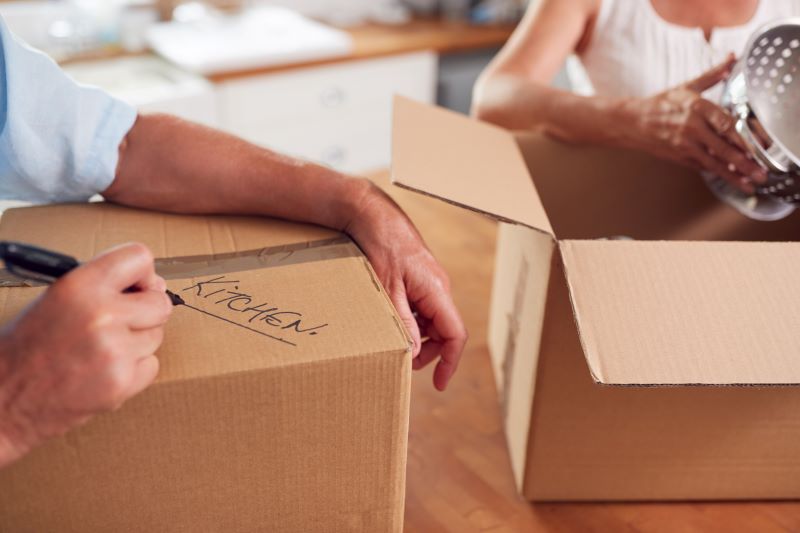Less House, More Life: Embracing the Freedom of Downsizing

The current tough economy is forcing many people to rethink where they live. A lot of them are turning to smaller spaces as a remedy for financial fluctuations—a necessary downsizing, they claim, this move often is. Yet the secret life of the national storage industry suggests that some of these downsizers aren’t doing much in the way of downsizing, either. According to the self-storage lobby, ten percent of Americans rent a storage unit, and that figure excludes garages, attics, and basements. Lately, a number of books and articles have praised the advantages of paring down.
The Economic Landscape When one confronts economic challenges, there tend to be some immediate steps that need to be faced and taken to make one's situation better. Often, this means making some tough decisions for the sake of financial stability and moving toward a position of safety net, whereby one can weather the financial storm and come out the other side. Downsizing is a way of trimming expenses in that immediate cash flow sense.
Pros of Downsizing The most evident advantage of downsizing is the immediate cut in costs, which encompasses not only lower mortgage or rent payments, but also, we hope, diminished utility bills and far less need to maintain the place we call home. The home equity that we might have realized from a larger home can be converted into liquid cash that can handle some of the pressure if we experience unexpected expenses or feel our finances are not transitioning smoothly to a new normal. Any additional savings from downsizing could be directed toward expenses that seem to have no ceiling, like food and gas. Or we could put that money toward any debts that seem to be hanging over our heads like a sword of Damocles.
When you downsize, it might become necessary to say goodbye to some of your belongings to fit them into your new living quarters. That said, this is a chance to sell some of the larger, better-conditioned items that you might not have believed were sellable. That huge couch could fetch a good amount if you put it up on Facebook Marketplace, and surely its bulkiness could hold more cash value than the children's toys that littered your old living room. Even hosting a few estate or garage sales could make for a decent bit of income to help with your move. Though, don't think too much about the stress of the downsizing; it's pretty much accepted as part of the experience. Instead, try to view your downsizing situation as a decluttering opportunity, one that allows for more room in your life for the things that really matter.
How Self Storage Adds Value Self storage can counteract the pressure of downsizing when you have almost no time or cannot part with certain possessions, for whatever reason, that wouldn't mesh in your new abode.
Future living arrangements could be unstable, or a need for a rapid downsizing could hit. Such circumstances might demand portable storage solutions. The self-storage industry is now using that word—"portable"—to market the many ways its facilities can help consumers.
When choosing a portable storage solution, make sure that it is actually portable.
Also check out your control options. You want to be the one who decides when to unlock your storage. And that should be a month-to-month decision.
If you are not ready to sell or move your belongings into your home all at once, a gradual downsizing approach may suit you better. Self storage allows individuals to take their time in making decisions about what to keep, what to sell, or what to donate, without feeling rushed.
When economic challenges arise, it is crucial to protect important belongings. Self-storage units, which have various security measures in place, offer a safe and sound environment for your items that may not fit into a smaller living area. Pay attention to the gates and guards, the cameras, and the other security measures in place at the facility, so that you can trust your items to a secure environment.
In the end, you can keep things that mean a lot to you or that you only use part of the time safely in a self-storage unit. That way, you can live in a smaller space and still have room for the things you hold dear, even if it takes a little more time and effort to get to them. Here are some types of stuff that can definitely find a home in self-storage.
Choosing the Right Self Storage Unit Given the economic uncertainties, it is very important to choose a self storage unit that you can afford and that is secure. Look at a facility's size guide to get a better idea of what size you might need. Month to month leases are good for tenants who are unsure how long they want to have a storage unit. There are a lot of different things to evaluate, including additional rental terms and security features, before you can say a unit is right for you and your financial situation. It also has to give you peace of mind that your items are safe and secure. This week, we considered some of those factors and what you should look for in a storage unit to guide your right decision.
When confronted with poor overall economic conditions, downsizing the size of one's home is not just a practical movement; it's a move towards financial security. Self storage can be an effective partner in this action. It allows you to move towards a smaller space while still having access to your things. As with any partnership, it is important to recognize the benefits of self storage and how they can allow for a more seamless transition to a financially sustainable living situation.